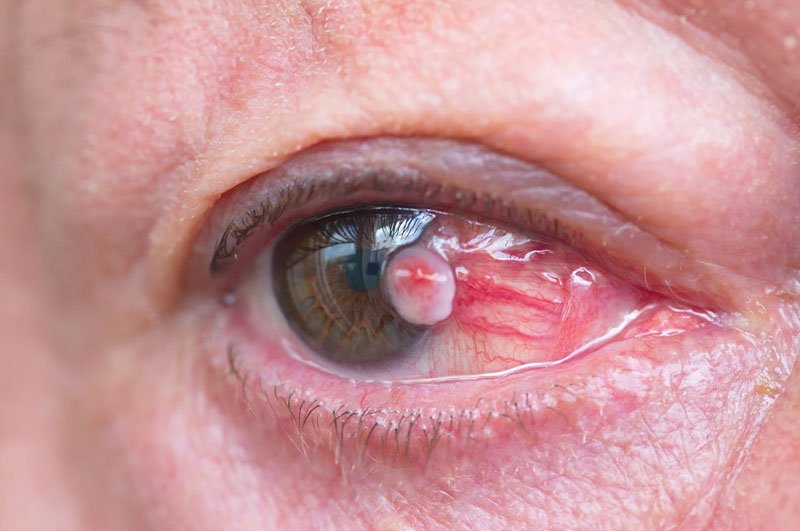Eye Conditions
Ocular Surface Tumour Excision
What is “OSSN”?
Skin cancers can occur on the surface of the eye and these are referred to as Ocular Surface Squamous Neoplasia or “OSSN”. These are similar to skin cancers affecting skin but are found on the conjunctiva, the glad-wrap layer around the white of the eye.
These surface cancers can look like other disorders such as a pterygium and Dr English will assess this in detail.
How are surface cancers treated?
Surface cancers are invariably treatable and treatment typically requires excision of the lesion, with margins, followed by a freezing treatment at the time of surgery to the surrounding area to ensure any remaining tumour cells are destroyed. The defect is then reconstructed to ensure optimal cosmesis. For large cancers, amniotic membrane transplantation may be required. If this is a possibility, Dr English will discuss this with you in advance.
Sometimes, chemotherapy drops are required post operatively to ensure the field does not have any residual tumour in the field.
How soon can I get back to work after the operation?
Most patients can get back to work within days of the procedure, although the eye is often gritty and painful for the first few days and it does depend on your line of work. Antibiotic and anti-inflammatory drops will be used to prevent infection and reduce redness and inflammation. A small vial of anaesthetic can be used at any time for significant pain, ensuring a comfortable first day of recovery while the eye settles down.
I’m not insured, can I still have surgery with Dr English?
Dr English is delighted to look after patients who do not have insurance and this is a common occurrence. All patients will be provided with full written financial disclosure prior to proceeding.
IN BRIEF: OSSN Surgery - what you can expect*
-
Surgery Time
1 hour
-
Hospital Time
Day surgery
-
Time off work
1 week
-
Time until exercise
2 weeks
-
When can I shower?
No showering head/face 1 week
-
Return to drive
1 week
-
Surgical journey completed
6 weeks
* Estimates are provided as a general advice and informational purposes only. It is not intended to be a substitute for professional medical advice and should not be relied on as health or personal advice.


